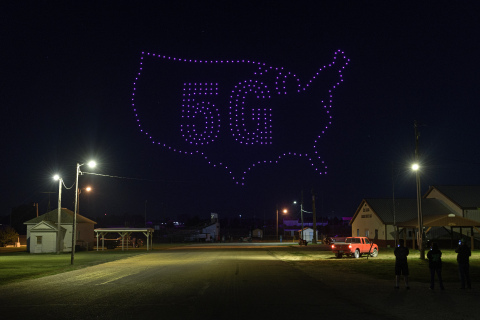With its SA 5G network, T-Mobile US has expanded its 5G footprint to an additional 2,000 cities and towns
T-Mobile US has achieved the next level of 5G: a nationwide standalone (SA) 5G network. By doing so, the carrier has expanded its 5G footprint to almost an additional 2,000 cities and towns, while also driving the benefits of 5G into indoor spaces.
Karri Kuoppamaki, T-Mobile US’s vice president of technology development and strategy, stated that the SA 5G launch is a nationwide launch that expands T-Mobile’s 5G footprint by 30% and allowing it to now cover 1.3 million square miles.
The carrier’s SA network operates in its 600 MHz spectrum; its NSA 5G deployment was limited by the reach of the carrier’s mid-band LTE deployment, because NSA needs an LTE carrier to access the core network. So the upgrade to SA means that the carrier immediately increased its 5G footprint by a substantial amount.
“Since Sprint became part of T-Mobile, we’ve been rapidly combining networks for a supercharged Un-carrier while expanding our nationwide 5G footprint, and today we take a massive step into the future with standalone 5G architecture,” said Neville Ray, president of technology at T-Mobile in a press release. “This is where it gets interesting, opening the door for massive innovation in this country — and while the other guys continue to play catch up, we’ll keep growing the world’s most advanced 5G network.”
SA 5G has long been regarded as the future of 5G because, unlike non-standalone (NSA), SA 5G doesn’t require an existing 4G LTE network to facilitate a connection. By removing this crutch, SA 5G allows T-Mobile to offer better coverage and performance. For instance, there have been latency issues associated with “upswitching,” or when a device switches from LTE to 5G.
And now, supposedly, that challenge will be a thing of the past for New T-Mobile subscribers. T-Mobile US said that its engineers “have already seen up to a 40% improvement in latency during testing” in 5G SA areas.
The subscribers that stand to benefit the most, though, are those in rural areas who have the hardest time maintaining a strong signal even when they’re connected to LTE. Further, those trying to connect from inside buildings — and these days, who isn’t? — should also see an improvement.
According to T-Mobile US, its 5G network now covers nearly 250 million people, which it says furthers its lead over AT&T and Verizon.
When it comes to the 5G core itself, T-Mobile US worked with Cisco and Nokia.

